Illustrative Image: CJIFA 2025 Community Empowerment Grants in Africa: Funding for Grassroots Climate Action, Sustainability, and Social Justice
Image Source & Credit: CJIFA
Ownership and Usage Policy
The CJIFA Community Empowerment Grant Program is officially open for the 2025 cycle. This flagship initiative is designed to strengthen grassroots action, foster local engagement in climate awareness, and promote sustainable development across Africa. The program recognizes that lasting solutions to the climate crisis must begin at the community level and scale upward, bridging the gap between innovation and practical, community-driven solutions.
By supporting grassroots organizations, community groups, and local NGOs, CJIFA aims to empower marginalized voices, amplify climate justice efforts, and create transformative change that resonates from local communities to national and regional platforms.
A. Small Grant Scheme Purpose
The Small Grant Scheme is tailored for high-impact, market-driven climate finance initiatives in developing economies across Africa. These grants are specifically meant for Community-Based Organizations (CBOs), Civil Society Organizations (CSOs), and local NGOs that have demonstrated the ability to achieve results despite limited resources.
The scheme emphasizes innovation, inclusivity, and sustainability, ensuring that supported projects drive measurable change in climate action while advancing human rights and social justice.
B. Overall Objectives
The 2025 Grant Program is structured around four key objectives:
-
Expand Climate Dialogue
-
Broaden and deepen national-level conversations on climate change, emphasizing its social, cultural, and economic impacts on African communities.
-
Create platforms where local perspectives influence national and regional climate policies.
-
-
Enhance Accountability
-
Strengthen the capacity of grassroots groups to advocate for better service delivery.
-
Promote the rule of law, human rights, and transparency in climate-related governance.
-
-
Empower Marginalized Groups
-
Build the resilience of vulnerable populations, including women, youth, indigenous people, and people living with disabilities (PLWD).
-
Support organizations that ensure inclusivity and equity in climate action.
-
C. Eligible Countries
Organizations must be based in and operate within one of the following countries:
Burkina Faso, Ethiopia, Kenya, Nigeria, Mozambique, Senegal, Somalia, South Africa, Zambia, Ivory Coast, Gabon, Rwanda, Niger, Cameroon, Malawi, Tunisia, Botswana, Uganda, Gambia, Sierra Leone, Côte d’Ivoire, Liberia, Mauritius, Egypt, Tanzania, Morocco.
D. Funding Overview
-
Grant Amounts: USD 5,000 – 8,000 per project.
-
Duration: Projects must run between 6 – 12 months.
-
Renewability: Annual awards, with the possibility of multi-year renewal based on performance.
-
Criteria: Projects must demonstrate innovation, cost-effectiveness, sustainability, and measurable impact.
E. Eligibility Requirements
Applicants must:
-
Be a registered not-for-profit organization – strictly non-religious, non-governmental, and non-political.
-
Have operated at grassroots level for 1–3 years.
-
Include youth-led, women-led, or marginalized group organizations.
-
Present innovative, inclusive, and sustainable project ideas with potential for real-world impact.
Ineligible Applicants:
-
Individuals
-
For-profit companies
-
Religious institutions
-
Political parties
-
Government entities
-
International NGOs
-
Organizations with annual income above USD 80,000
-
Organizations headquartered outside eligible countries
F. Thematic Priorities
Projects must address climate resilience and environmental sustainability, while aligning with one or more of the following themes:
-
Democracy and Rule of Law
-
Promote transparency, good governance, and anti-corruption.
-
Strengthen access to justice and rights-based frameworks.
-
-
Equality and Non-Discrimination
-
Advocate for women’s empowerment.
-
Prevent and address gender-based violence.
-
Foster inclusion and diversity in community decision-making.
-
-
Business and Human Rights
-
Ensure environmental and climate justice.
-
Strengthen corporate accountability to protect communities and ecosystems.
-
-
Economic Empowerment
-
Build skills development programs.
-
Encourage innovative local production, value addition, and sustainable market access.
-
G. Evaluation Criteria
Applications will be assessed based on:
-
Innovation – Does the project propose unique, creative, and impactful solutions to climate justice?
-
Catalytic Potential – Does it significantly contribute to climate mitigation or adaptation? Can it be scaled or replicated elsewhere?
-
Mobilization – Does the initiative engage both government and private sector actors to co-create solutions?
-
Sustainability – Does the project demonstrate economic viability, environmental responsibility, cultural sensitivity, and political cohesion?
-
Inclusivity – Does it actively involve women, youth, PLWD, minorities, and indigenous groups in design and execution?
H. Application Process
Applicants must submit the following:
-
Online Application Form – fill in all required sections.
-
Word-Based Proposal Template – adhere strictly to word limits.
-
Excel-Based Budget Template – provide a clear financial breakdown.
-
Supporting Documentation – evidence of registration, governance, and organizational capacity.
Languages Accepted: English, French, Portuguese.
Completed applications must be uploaded via the designated online portal.
Conclusion
The CJIFA 2025 Community Empowerment Grant Program offers a critical opportunity for grassroots organizations across Africa to turn bold climate ideas into action. By supporting local innovation, amplifying marginalized voices, and ensuring accountability, these grants will strengthen Africa’s resilience against climate change while promoting justice, equity, and sustainable development.
Submit your grant application form here






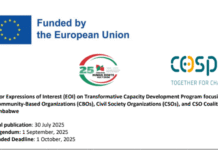
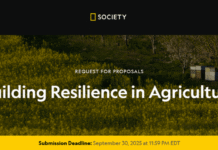
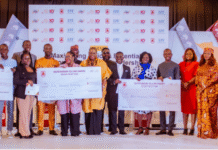
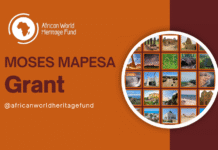
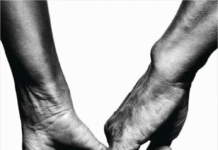





 The African Research (AR) Index is a comprehensive scholarly directory and database focused explicitly on journal publishers that publish and disseminate African research.
The African Research (AR) Index is a comprehensive scholarly directory and database focused explicitly on journal publishers that publish and disseminate African research.

